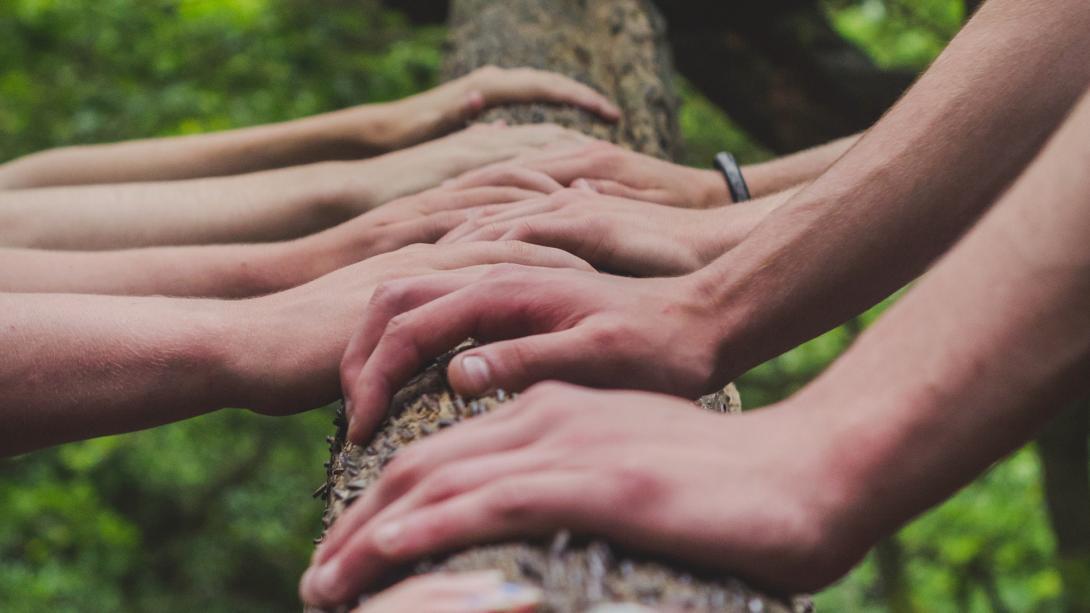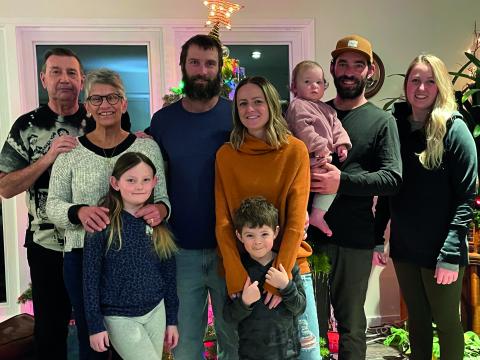
© Photo by Shane Rounce | Unsplash.com
When I was tiny and had buck teeth, I sang “God Bless the USA,” composed by Lee Greenwood, with my young classmates on a gymnasium stage. I think we were in the fourth grade. We waved flags and grinned at the sea of adults before us, adults who were showing us how to be proud: we show up, participate, celebrate. The song includes the repeating lyric, “I’m proud to be an American.”
Today, I don’t so easily sing the patriotic songs. I’ve studied history and walked with the oppressed. I work to steady my focus upon Jesus Christ and the Gospel that he proclaimed, but now I feel squeamish if a flag is too close to a cross. Now I wonder: What does it mean to be patriotic, and a person of faith? Can a person love God, neighbor, and country?
When I was a young adult, my childhood pride for being a citizen of the United States was swallowed by shame. Studying history helped me understand that the privileges of being a citizen of the United States are not equally and openly shared, despite the fact that our founding documents declare “liberty and justice for all.”
No matter how strong the bedrock, though, a foundation can still be warped. And our nation was founded on principles of harm and destruction: capitalism, militarism, imperialism, and violence toward the land’s original indigenous nations. I doubt that the United States were ever truly united, and this makes me sad. The stains of history color our current time and we are all called to lament and repent.
July 4th
Once, during a Fourth of July parade, I became sick. Fresh back to the U.S. after studying abroad and my mind foggy with jet lag, I stood among a crowd of white people donned in red, white, and blue, speaking English, waving flags, and eating candy. Then a float went by that showed an Uncle Sam character punching a man with brown skin. At the sight of it, people near me laughed and cheered. I stared—like a person might linger at a train wreck—then got sick. My stomach squirmed, while my heart raced. Breathing became difficult. I choked out some words to my family, who could see that I was not OK and did their best to help me feel better. I didn’t have to go to the hospital, but I was scarred by the intense experience.
After that moment I was uncertain if I would ever again feel comfortable with patriotism—if I would ever again feel pride for being American. I didn’t create the horror of patriotism turned violent and cruel. I didn’t cause the harm, but I inherited my nation’s history. Was I guilty by association? Possibly. Am I responsible for playing a part in the recovery? Definitely.
I’m learning that guilt and shame need not corrupt Christ-centered actions and attitudes. When it comes to being an American, instead of revolting and allowing disgust to foster opposition, I can embrace the goodness, love my neighbors, and foster a grateful heart. Gratitude can be a close cousin to patriotism, sort of like friendly playmate. And my American citizenship comes with many benefits: freedoms of religion, assembly and press especially. There’s much to celebrate. Others have sacrificed greatly so I can write these words and share them freely. I’m grateful, and this gratitude creates the current patriotism that I feel. With this patriotism is a strong desire to share the comforts and privileges I experience through my citizenship.
Gratitude can be a close cousin to patriotism, sort of like a friendly playmate. And my American citizenship comes with many benefits: freedoms of religion, assembly and press especially. There’s much to celebrate. Others have sacrificed greatly so I can write these words and share them freely.
Despite my concerns, I love my country, and it’s OK if my patriotism is complicated. I am part of this nation that I love, and I can wear red, white, and blue while I wade in the grey of questions; pride and criticism can mix. I ask questions and celebrate. I feel uncomfortable and share the privileges I experience. I laugh and sing the national anthem at ball games and smile at fireworks shows. I want to gather with neighbors and eat bar-b-que on the 4th of July.
At the same time, I want to remain cautious, to make sure my devotion to my country doesn’t stunt my love of God and my neighbor. I believe it’s dangerous to blindly love any nation without question or critique, whether that nation be the United States, Canada, China, Russia or any other. I worry about the unconscious construction of idols. I continue to evaluate that my devotions are in the right order: Love for God, others and self then love for place, culture, nation.
After all, before we belong to any nation, we belong to God. We are citizens of planet Earth and God’s eternal and borderless kingdom, first. The prophet Isaiah warned:
Even the nations are like a drop from a bucket,
and are accounted as dust on the scales …
All the nations are as nothing before him;
they are accounted by him as less than nothing and emptiness. (Is. 40:15-17)
Being patriotic and a person of faith, means remaining humble and open to transformation. We work for the day when our differences don’t destroy us, when unity is true and celebrated with freedom. When we can show up and participate in the project of building and rebuilding a nation more gripped by peace and neighborly love than violence.
The poet Amanda Gorman has proclaimed:
being American is more than a pride we inherit—
It’s the past we step into, and how we repair it.
(“The Hill We Climb.”)
There are many paths to peaceful patriotism, and we can all engage in patriotic actions, even if our patriotic feelings are complex. We scrutinize the systems that cause suffering and we reverence the flag. We pray for those whose lives have been lost by war and violence and we grip candles at peace vigils, hearing heartache. We advocate for “liberty and justice for all” and we share bread and shelter with our neighbors in need. We care for veterans and lobby for better public policy.
We work for the day when our differences don’t destroy us, when unity is true and celebrated with freedom.
I believe in the reordering offered in the reign of God and am willing to play a part in its arrival. Each time I do, I am following the example of the adults who listened to me sing “I am proud to be an American” long ago in a school gymnasium: I show my patriotism by how I show up, participate and celebrate in the promise of a better nation.













